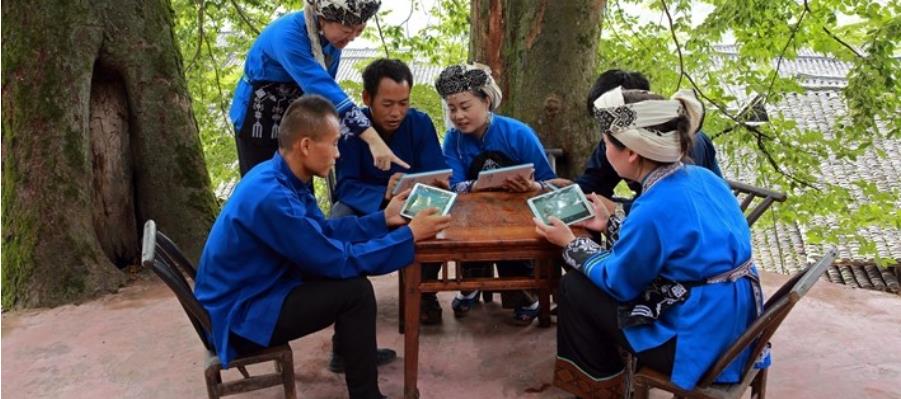
In 2004, China's Ministry of Education launched the “One College Student Per Village” Programme, which is organised and implemented by the OUC via its nationwide operation system. The “One College Student Per Village” Programme is based on the concept of “helping the poor by improving their intelligence and supporting intellect improvement through education.” Through modern distance education and information technology, it aims to bring together high-quality resources, construct a hybrid teaching model based on the combination of online autonomous learning and face-to-face tutoring, and cultivate local talent who are willing to stay in rural areas and do a good job in order to get rid of poverty. Since 2017, the OUC has begun to explore integrating AI technology into teaching, educational administration, and other educational process by making use of AI technology to develop exclusive learning plans for students, accurately pushing high-quality educational resources, strengthening learning support services, and implementing automatic learning evaluation. These efforts have promoted the development of the “One College Student Per Village” Programme and provided references and replicable solutions for the development of disadvantaged areas and groups in education around the world.
As of December 2024, there are 1,513 learning centres in the “One College Student Per Village” Programme, covering 29 provinces (autonomous regions and municipalities directly under the central government) in China. The Programme has offered a total of 29 junior college and undergraduate majors (orientations), enrolling a total of 1.157 million students and graduating 815,000 university students for rural areas. Having trained a large number of applied practical talents for new rural construction and Rural Revitalisation, the Programme has played a positive role in narrowing the regional and urban-rural gap, promoting educational equity, serving the construction of lifelong learning education system for the whole people, and helping to fight a decisive battle against poverty. In the future, the programme will upgrade its information technology, intensify the use of artificial intelligence, big data, cloud computing, and other modern information technology means, cultivate more local talents, and continue to aid rural revitalisation.
The “One College Student Per Village” Programme was awarded the 2020 UNESCO King Hamad Bin Isa Al-Khalifa Prize for the Use of Information and Communication Technologies in Education (UNESCO Prize for the Use of ICT in Education), as announced by the UNESCO headquarters in Paris in April 2021. This is the second time that a Chinese institution has won the award since 2008.